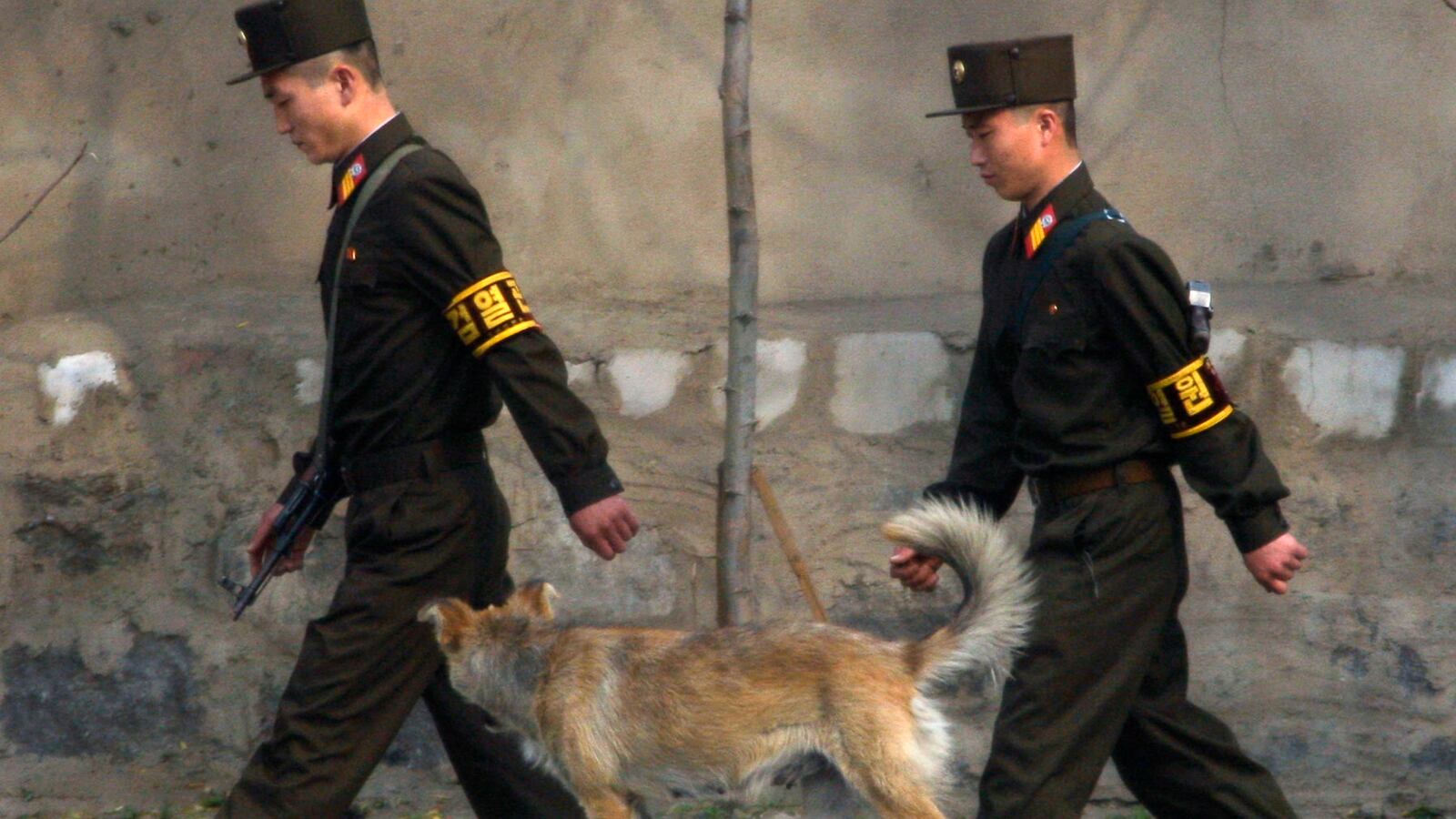According to a media report that surfaced late this week, Kim Jong Un had his uncle, Jang Song Thaek, stripped naked and thrown into a cage with 120 hunting dogs that had not been fed for three days. Five of Jang’s lieutenants were put to death at the same time. Kim and his wife witnessed the horrific executions along with 300 others. It took an hour for the six “traitors” to be devoured by the pack.

True? Most analysts think not. For one thing, the storyline is too horrible to contemplate. Yet the most damning evidence is that the December 12 report appeared in Wen Wei Po, a Hong Kong newspaper with a low reputation for reliability, recently ranked close to the bottom—19th of 21—in a survey of print media in that city.
Moreover, apart from some other Chinese-language papers, few other outlets picked up the story until yesterday, and the Washington Post’s Max Fisher notes that not even the South Koreans, always ready to slander their cousins in the North, were willing to run with it. If you work for Singapore’s Straits Times, you might be feeling a little lonely for repeating the ghastly tale of death by dog bite as early as Christmas Eve.
In all probability, we will not know for a long time—perhaps years—how the execution was carried out. Yet the truth or falsity of the lurid report is almost beside the point. We know from dozens of credible sources that the North Korean regime is capable of killing “enemies” in the most painful manner possible—and sometimes in the most spectacular ways imaginable. For instance, according to media reports, a 2012 execution of the assistant chief of staff of the Ministry of the People’s Armed Forces was carried out with a mortar round “to leave no trace of him behind down to his hair.” In any event, it’s clear that Jang Song Thaek was put to death in some fashion, and probably by machine-gun fire if the majority of analysts is correct.
What is intriguing with this dog-bites-man story, however, is that it started with Wen Wei Po. The paper richly deserves its low rating for reliability because of close ties to Beijing, often carrying reports the great and glorious Communist Party of China wants the world to hear. Much of this reporting, not surprisingly, is just not credible.
Wen Wei Po would simply not run something counter to the Party’s interests, so the dog story is one hint that Beijing wants to defame the young Mr. Kim, the third of his family to rule the North. And just days after the sensational report appeared in the Hong Kong paper, state media began a campaign criticizing the North Koreans.
The Wen Wei Po article contains a nugget that tells us why Beijing wanted to get back at the regime in Pyongyang. The paper reported that the departed Jang Song Thaek wanted to replace Kim Jong Un with his elder brother, Kim Jong Nam, on the throne. Kim Jong Nam, once designated the successor to Kim Jong Il, has been under the care and protection of Beijing for years, in Macau and now in an undisclosed location, perhaps protected so that he will be available to take over in Pyongyang to represent China’s interests.
So the Chinese have a motive to go after Kim Jong Un now that he has eliminated their favorite North Korean, Jang Song Thaek. There are also other reasons for Chinese policymakers these days to put distance between themselves and North Korea, their only formal military ally. The surprise execution of Mr. Jang—however it was carried out—is a warning sign for China that its North Korea policies have failed. Jang was Beijing’s closest ally in the Kim regime, and now the Chinese find themselves branded an enemy in the North Korean capital because of their close dealings with him.
Moreover, Beijing is undoubtedly concerned that Kim Jong Un’s regime, sure to be wracked by more purges, will prove to be unstable, and that a newly assertive military, emboldened by its success in eliminating Jang Song Thaek, will lash out. With Jang, a moderate, out of the way, generals and admirals are bound to proceed with a fourth nuclear detonation, a ballistic missile test, and more deadly attacks on South Korea. The last thing China’s policymakers want is to be held accountable for the actions of their bellicose—and now uncontrollable—Korean allies.
So it is not hard to imagine that the Chinese, now with less than zero influence in Pyongyang, would tell the world that the North Koreans are crazy and not their responsibility. And there is no better way for Beijing propagandists to make their case than to leak the story of the world’s most horrible execution last year.
Perhaps this is too conspiratorial for even the Chinese, but when horrible tales are propagated in established Chinese media channels about brutal North Koreans, we know something is not right in Pyongyang—and Beijing.
Jang Song Thaek is dead, and perhaps as many as eight of his allies were executed in the last two months. No matter how they died, there is certainly turbulence ahead in North Korea—and the Chinese are running for cover.
Gordon G. Chang is the author of Nuclear Showdown: North Korea Takes On the World. Follow him on Twitter @GordonGChang.






